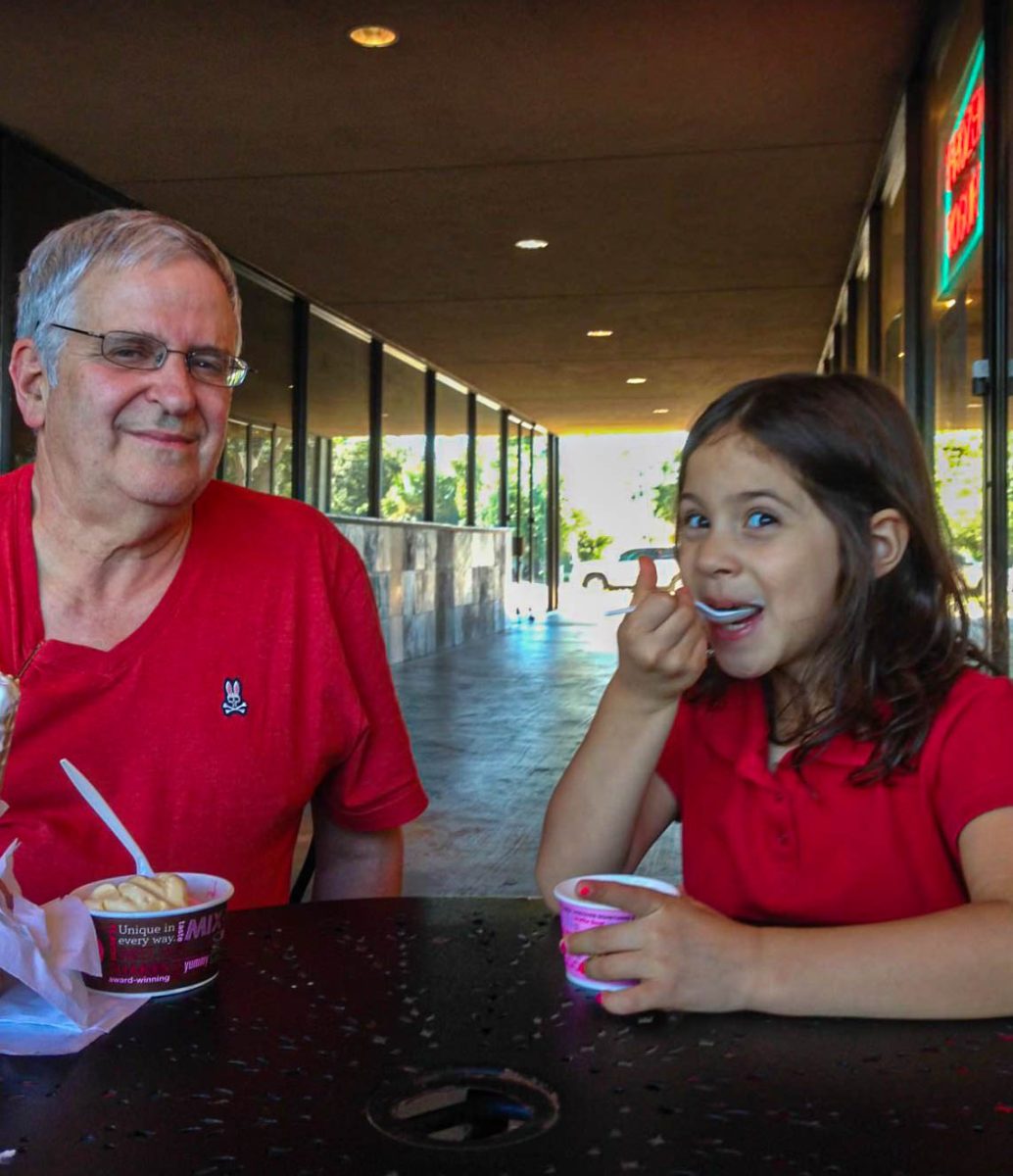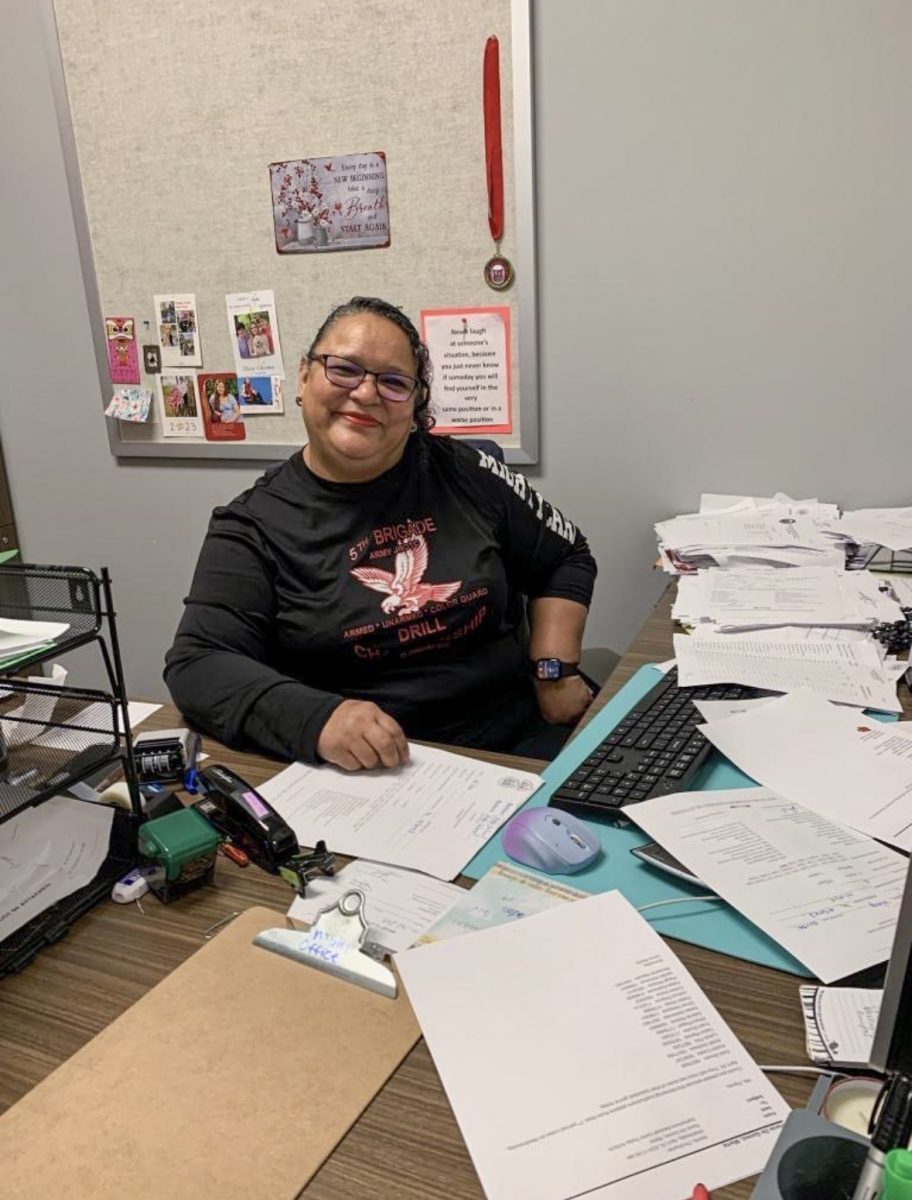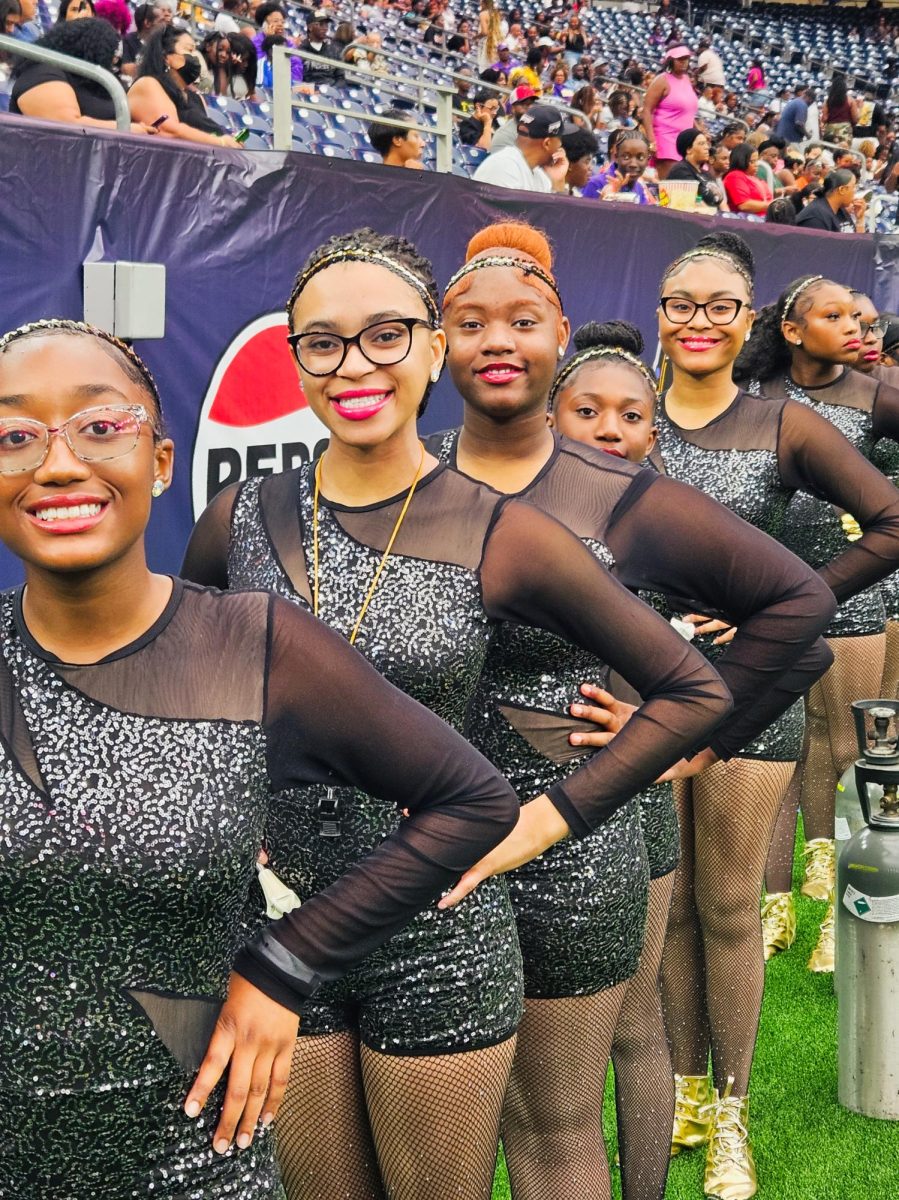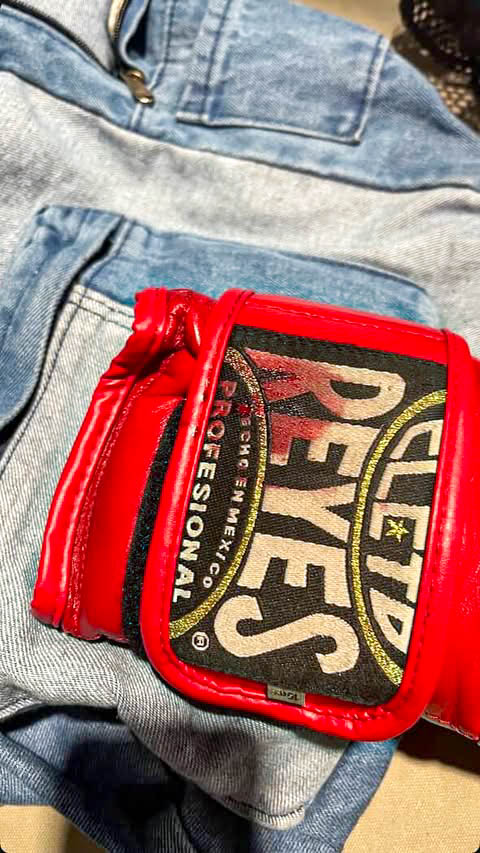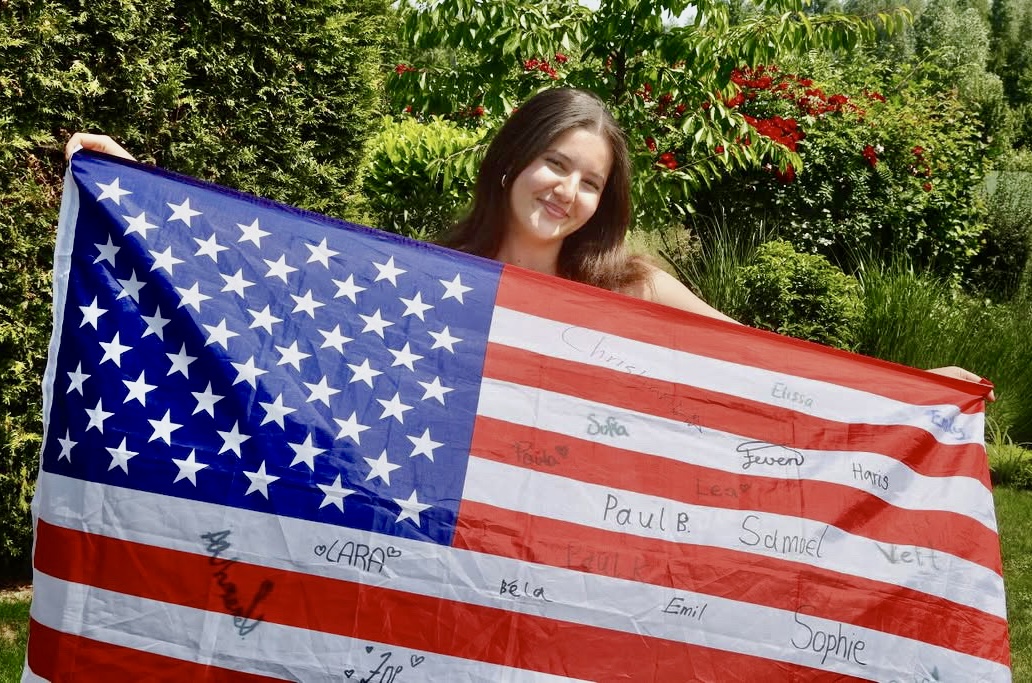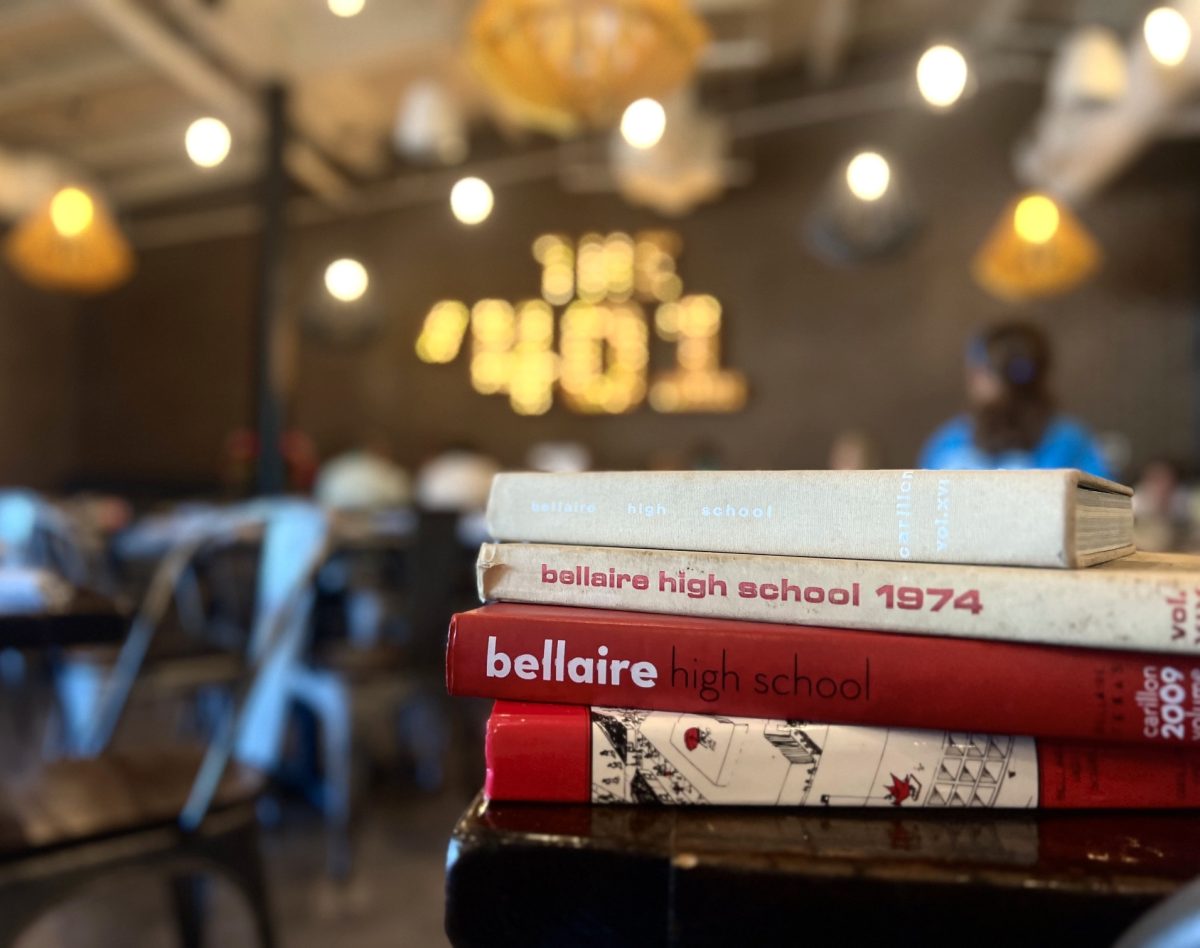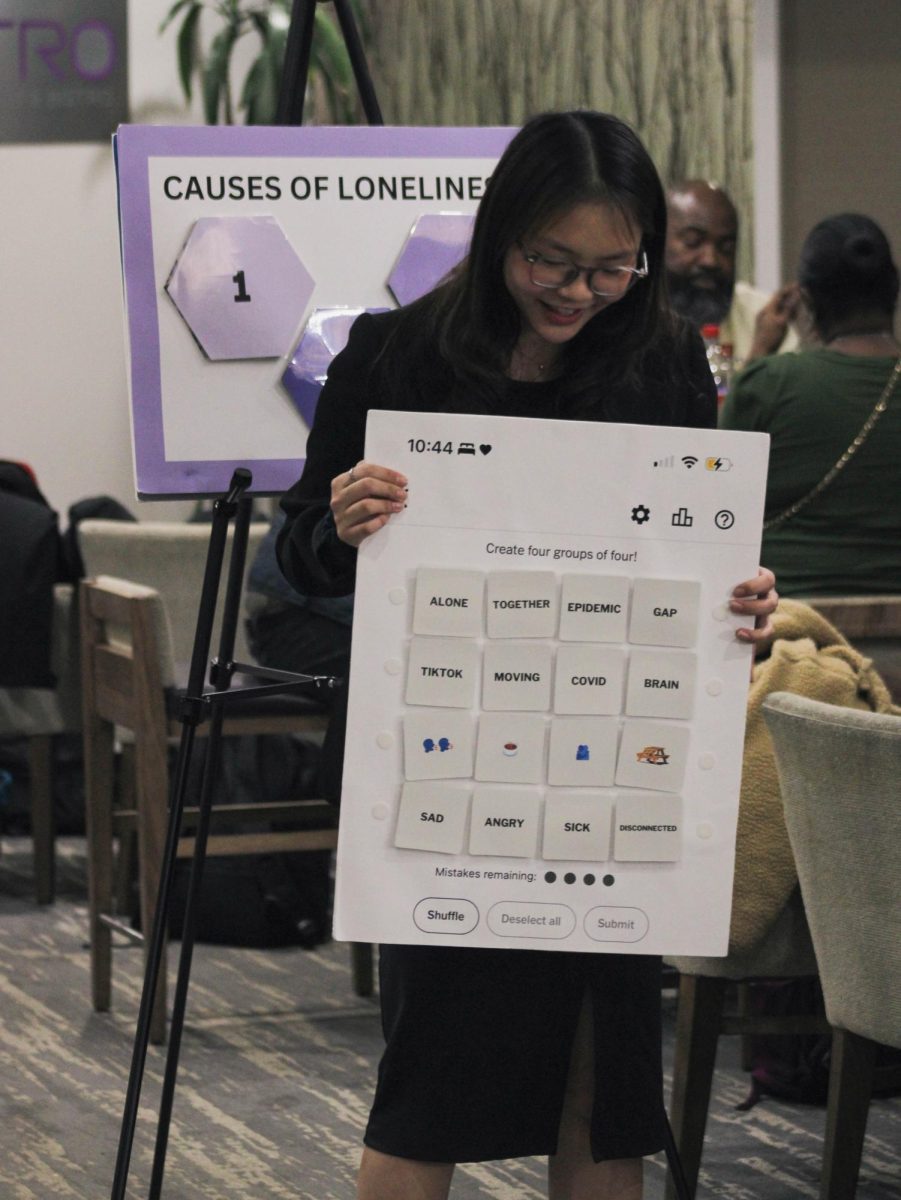From Perth, Australia to her paternal grandparent’s house, to her mom’s apartment and to living in her dad’s house before moving in with her mom, she had never lived in one place for more than two years.
Until her maternal grandparents moved to Houston.
Junior Eliannarose Parraga started living with her grandparents over the summer of eighth grade, and has quickly grown closer with them through getting to know them better after they moved to Houston from Australia.
“I see them like my parents, honestly,” Parraga said. “Sometimes they’ll be talking, and instead of [referring to themselves as], ‘Oh grandpa or oh grandma, blah blah blah’ sometimes they’ll slip up and be like, ‘Oh mommy or oh daddy.’ It’s like I’m their child. The only reason they’re in Houston is to take care of me, and they’re staying here until I go to college.”
Parraga’s parents divorced when she was one and a half, and they had shared custody over her, causing her to bounce between houses growing up. Parraga then went on to live with her maternal grandparents, causing her to form many fond memories with her grandfather.
“My grandfather notices the little things,” Parraga said. “My nails are longer, and he would always peel my oranges and have them in my lunch. And one day I asked him, ‘Why do you peel them?’ He was like, ‘Oh, that way you don’t have to peel it with your nails.’”
Parraga’s grandparents have supported her through many tough times. She sees her grandparents as “everything that you would want your parents to be.”
“It was my freshman year,” Parraga said. “I was feeling so sick. I used to have a phobia of vomiting. I looked at them and I was like, ‘I’m scared. I don’t want to throw up.’ I was on their bed and they were on either side of me. It was just really sweet. They were cracking jokes with me, and they let me sleep in between them and they didn’t care that I woke them up. It felt like I was a little kid again.”
Parraga is very “grateful” for her grandparents, and over the years she bonded with her grandfather over their mutual love of breadmaking. This led Parraga to start selling her grandfather’s homemade loaves at Bellaire, a side hustle that she started last year.
“I would bring slices of his bread to school, and I’d share them with my friends,” Parraga said. “They were like, ‘This is really good. I’d buy it from you.’ I thought about it and decided to try [selling them]. I’m very good at selling things to people. I’m a people person.”
Parraga’s bread business rapidly grew through word of mouth, but she was forced to narrow her menu from 20 breads to 10 and raise the prices by $2 to $3, due to the high cost of eggs. Parraga’s grandfather, Ilan Orner, took a break from selling the bread, but he plans to restart selling soon.
“I enjoy it,” Ilan said. “It’s relaxing, and it teaches patience. Because you gotta wait for bread to rise twice. You gotta sit there and watch it. It’s like watching paint peel from a wall.”
After Parraga sold bread to her chemistry teacher, she asked her grandfather if she could sell the bread more widely. Even with her business being so successful, Parraga doesn’t keep any of the money from sales. Instead, she gives it to her grandparents as ‘pocket money.’ Ever since it started, the bread business brought Parraga and her grandfather closer together.
“I would say my father figures are definitely my grandfathers,” Parraga said. “Emotionally, [I’m closer to] my grandfather on my mom’s side, because I live with him more [and] I see him more. He’s my therapist. He’s my best friend. I tell him everything.”
Her grandparents aren’t her only pillars, though. Her relationship with her parents is “complicated” but Parraga grew up with shared custody with her parents, as they had divorced when she was two. Every Thursday she would switch between living with her mom and her dad, because they “fought like cats and dogs.”
“It’s nice being in an environment [living with my grandparents] where you see such a good relationship between two people,” Parraga said. “[You see] how having that good relationship reflects on how they treat you and also how they deal with you as a unit.”
When she stayed with her mom, she lived in the Heights in an apartment, but when she stayed with her dad she lived in her grandparents house in Sugar Land. In order to distinguish her sets of grandparents, Parraga called her dad’s parents Mimi and Papi.
“My childhood home is on my dad’s side,” Parraga said. “I grew up in that house, and whenever I was [living with my dad] I would stay there. But then I had a fallout with my dad around seventh grade. And after I stayed with my mom for a little bit, I went to live with my grandparents.”
While living at her Mami and Papi’s house, Parraga found an additional family in the neighbors of her childhood home. So many people have helped raise her that sometimes she feels like the “village baby”.
“Honorable mention to my childhood best friend and her parents. Her house was literally the house in front of mine. She’s a year older, but we grew up together. Her parents see me as their child. Her father will hug me and be like ‘That’s my baby.’ They’re another set of people who are very loving.”
Throughout all of this, Parraga would visit her “Titi,” her dad’s sister. Once her aunt got her own house in 2023, Parraga started staying with her Titi for longer periods of time in order to take the pressure off of her grandparents sometimes.
“I love running errands with her,” Parraga said. “It’s so fun because we get [our tasks] done, but we’re still doing stuff. We might stop and go get something to eat and just talk. So it was fun with her. Up until she got her house, I would normally stay at my Mimi’s house. And she would take me to and from my Mimi [and] they would double team it.”
Visiting her aunt to constantly moving back and forth between her parent’s houses as a kid has led Parraga to do two things — absolutely hate packing and to never decorate her room.
“Because I’ve always moved so much, I just never really decorate my room,” Parraga said. “I always see all my friend’s rooms, and they decorate and they have stuff in it, and I’ve never done that, even in my grandparent’s house. My room is not decorated. It has a bed, it has my bedside table, it has all my million and one clothes, but I don’t put any posters up. I don’t put any paintings. I don’t paint my walls.”
In the same way, since she moved so much over the course of her life, home isn’t a singular place for Parraga.
“I don’t really have a place that really feels like home,” Parraga said. “[There are] different places that feel like my home, not just like one place. Because I grew up staying at my Mimi’s house, or staying with my grandparents, staying with my aunt, and between my dad and mom’s house, they all feel like home to me.”
Because she has lived with so many people, Parraga learned how to adapt to different homes and different individuals.
“[There are] very different rules for different houses,” Parraga said. “So [moving] does help with learning how to adapt to different personalities. Because when you live with someone, when you’re in their house, you have to live with them. You have to learn how to live with that person’s personality and how to follow their personality.”
Living with her grandparents not only has brought Parraga closer to her mom’s side of the family, but also to her culture. Parraga grew up Christian, but is Jewish through matrilineal descent.
“I am Jewish,” Parraga said. “But I need to learn about my heritage, because I have the holidays, I have the names, I know when they are, but I don’t know what they’re for. My mom never celebrated any of that. When I started living with my grandparents, I got more into my culture.”
With her grandfather and grandmother being 74 and 83, respectively, health issues are always a concern in Parraga’s home. Her grandmother experienced open heart surgery when Parraga was a freshman, and her grandfather visited the hospital in September for a health concern.
“It was scary,” Parraga said. “I was very stressed, because that’s my grandfather, that’s the person I’m closest to. He knows me the best out of everyone. And then [there’s] also the fact that I have to take care of everything. I had to keep a calm head, but when I got to my childhood best friend’s house, I started crying.”
When her grandfather had his health scare, Parraga had to be the “acting adult.” She talked to the doctors, checked up on medications, and took care of “everything.” Janet Orner, her grandmother, is appreciative of all that she does, and describes their relationship as “beautiful.”
“I love [Parraga],” Janet said. “That’s why I have a good relationship with [her]. I hope we’ll maintain it, [and] it’s better than my [relationship] with [her] mother. [Parraga] was the first granddaughter. We were there with [her] mother when she was in labor and everything like that [but] I couldn’t be there when [Parraga’s mother] was delivering.”
Through living with her grandparents, Parraga learned the meaning of love and family.
“[Living with them] helped me heal from a lot of things that I needed to heal from,” Parraga said. “It helped me realize how to receive love from different kinds of people the way that they give it, and also how to give love to them. Just because I love sweetly doesn’t mean that I don’t deserve to feel loved.”
CAPTIONS:
Parraga eats ice cream with her grandfather, Ilan Orner, at Marble Slab. She was 6 years old at the time and her grandparents were visiting from Australia.
Ilan and Parraga pose for a photo at the French Riviera when they went out to brunch together. This was during one of her grandparent’s visits from Australia.
Parraga at six months is being held by her mother Lianna Parraga and father Victor Parraga. Parraga’s parents weren’t divorced at the time.
Janet Orner, Parraga’s grandmother, pushes Parraga in a full laundry basket. Parraga was still living in Australia with her parents at the time.
Her grandmother cuddles with Parraga when she was six months old in 2009. Parraga was her grandmother’s first grandchild.


